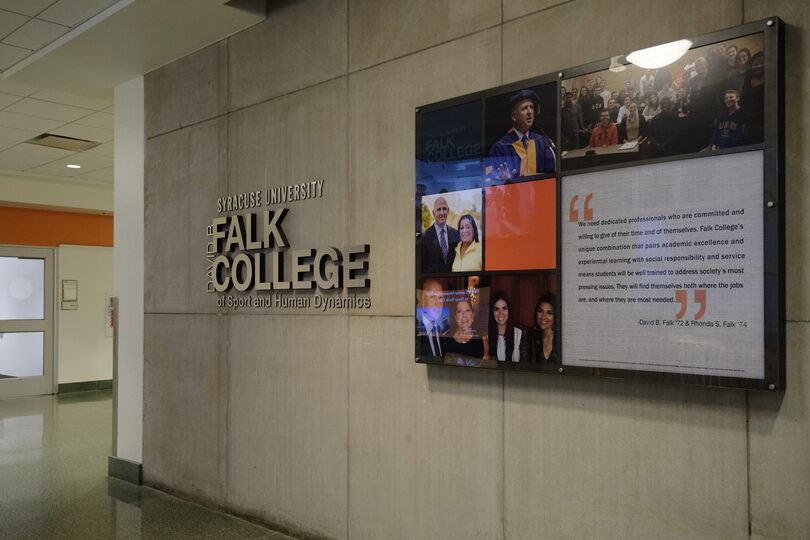Community Review Board reviews training for non-sworn DPS officers

Maxine Brackbill | Photo Editor
Leaders of Tuesday's open forum discussed the Community Review Board's 2023-2024 activity with DPS, including extending the length of pre-event body camera footage on officers.
Get the latest Syracuse news delivered right to your inbox.
Subscribe to our newsletter here.
Members of Syracuse University’s Community Review Board reviewed the new standard operating procedure for training non-sworn Department of Public Safety officers at its open forum Tuesday evening.
CRB Chair Mary Kiernan, an associate teaching professor in the David B. Falk College of Sport and Human Dynamics, and CRB consultant Tony Perez led the forum. Throughout the event held in Falk College, Kiernan and Perez discussed the board’s activity with DPS during the 2023-24 academic year, including extending the length of pre-event body camera footage on officers.
The new standard operating procedure is designed to follow the Commission on Accreditation for Law Enforcement Agencies requirements, said Craig Stone, chief of campus safety and emergency management. CALEA requirements include comprehensive written directives, fact-based management decisions, preparedness to address incidents, community maintenance, independent review by experts and annual reviews and assessments.
Under the procedure, Stone said DPS is looking to have non-sworn officers both train before and while they’re working with the department. Community resource officers, community service officers, public safety dispatchers and coordinators, residential community safety officers and fire safety personnel are all considered non-sworn personnel, Stone said.
Stone said non-sworn officers should also have additional de-escalation training to handle situations before sworn DPS officers arrive at a scene.
“(When) dealing with someone in crisis, (officers should) have the skills to be able to defuse a situation,” Stone said. “However, it’s a good idea that we can look at some type of customer service training to help them try to talk to someone.”
Kathy Pabis, commander of residential safety and security, agreed with Stone and said that in addition to yearly training, de-escalation training will assist sworn DPS officers in crises.
“It’s a good idea to also incorporate some additional training on how to handle situations. They have a radio, they’re the eyes and ears for DPS. So they get on the radio to call in anything that’s in progress to DPS on what they observe,” Pabis said.
During its November CRB forum, the Student of Color Advisory Committee, a group that provides student feedback on campus safety and DPS operations, recommended that DPS extend the pre-event buffering period of body cameras to 120 seconds.
Between the November meeting and Tuesday’s, Kiernan said the duration was changed from a 30-second to a 120-second period.





